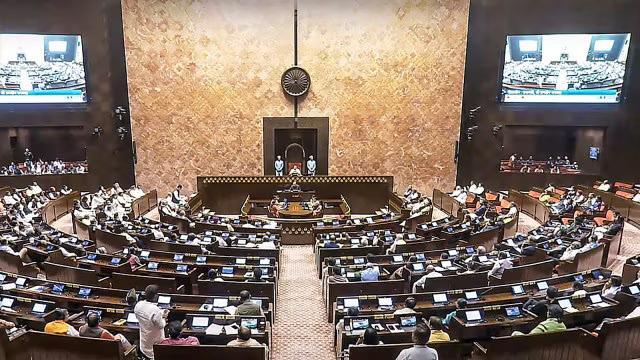
RS Creates Record by Holding 17-Hour-Long Discussion on Waqf Bill
In a remarkable feat, the Rajya Sabha has created a new record by holding a 17-hour-long debate on the Waqf Bill. Union Minister Kiren Rijiju, who made the announcement, praised the members of the Upper House for their dedication and perseverance in engaging in such a long and intense discussion. The Waqf Bill, aimed at regulating and managing Islamic charitable endowments, has been a topic of much debate and controversy in recent times.
The record-breaking debate, which lasted for 17 hours and 2 minutes, saw members from various parties engaging in a spirited discussion on the bill. The debate was marked by heated exchanges, intense scrutiny, and passionate arguments from both sides. The sheer length of the discussion, which surpassed the 15 hours and 51 minutes record set during the discussion of the Essential Services Maintenance Act (ESMA) in 1981, is a testament to the dedication and commitment of the members of the Rajya Sabha.
Rijiju, while hailing the achievement, noted that the long debate was a reflection of the importance and sensitivity of the issue. “The Waqf Bill is a matter of great importance and sensitivity. It is a matter of national interest, and we have to ensure that we get it right,” he said. The minister’s words were echoed by other members who participated in the debate, who emphasized the need for a thorough and detailed discussion on the bill.
The Waqf Bill, which was introduced in the Rajya Sabha in March 2020, seeks to regulate and manage the Waqf properties, which are considered sacred and are managed by the Waqf Board. The bill aims to ensure that these properties are used for the benefit of the community and are not exploited for personal gain. The bill has been a subject of much controversy, with some critics arguing that it is an attempt to regulate the religious practices of Muslims, while others see it as a necessary step to ensure the integrity and transparency of the Waqf system.
The debate on the Waqf Bill was marked by intense scrutiny and criticism from both sides. The opposition parties, including the Congress and the Left, accused the government of trying to impose its will on the Waqf system and of being insensitive to the concerns of the Muslim community. The government, on the other hand, defended the bill, arguing that it was necessary to ensure the transparency and accountability of the Waqf system.
Despite the intense criticism, the government remained committed to passing the bill, and the debate on the Waqf Bill was eventually adjourned after 17 hours and 2 minutes. The bill is expected to be taken up for further discussion and voting in the coming days.
The record-breaking debate on the Waqf Bill is a testament to the importance and sensitivity of the issue. It is a reflection of the commitment and dedication of the members of the Rajya Sabha to engage in a thorough and detailed discussion on issues of national importance. The debate has also highlighted the need for greater transparency and accountability in the Waqf system, and it is hoped that the bill will ultimately lead to the establishment of a more transparent and accountable Waqf system.
In conclusion, the Rajya Sabha’s record-breaking debate on the Waqf Bill is a significant achievement that reflects the commitment and dedication of the members of the Upper House to engage in a thorough and detailed discussion on issues of national importance. The debate has highlighted the importance and sensitivity of the issue, and it is hoped that the bill will ultimately lead to the establishment of a more transparent and accountable Waqf system.






